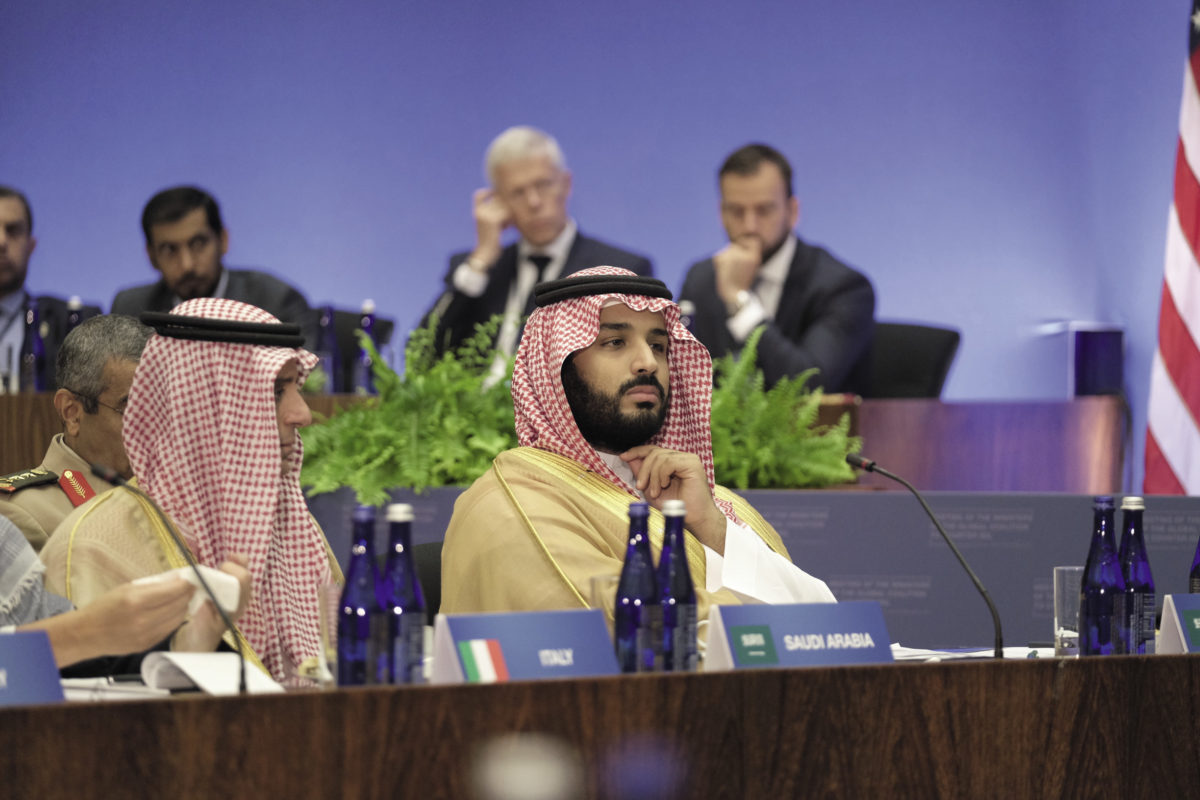The gifts born by Saudi Arabia’s crown prince Mohammed bin Salman to Athens, Greece, were plentiful yet their value is highly contested since the bearer of the gifts has no green investment background and Saudi Arabia’s green energy transition efforts can thus far be described as limited.
Concretely, during his visit, the two countries launched the so-called “Supreme Strategic Cooperation Council (SCSC)”– a new institution aiming to forge stronger business ties between Greece and Saudi Arabia in various economic areas, including green energies and hydrogen.
And there is no doubt that the most significant agreement signed concerns the East to Med data Corridor (ECM) project, which is a subsea and land data cable system that will connect Europe with Asia through Greece and Saudi Arabia.
The agreement for the eye fabric optic data cable was signed by MENA Hub, owned by Saudi Arabia’s STC, the Greek Public Power Company (PPC), the Greek telecoms and satellite applications company TTSA, and the Cyprus Telecommunications Authority (CYTA). The project has an estimated cost of €800 million and construction is slated to begin by the end of the year, with completion scheduled for 2025.
Cheap green electricity to reach Europe
In line with the launch of the SCSC, bin Salman told Greece’s prime minister Kyriakos Mitsotakis that “we have also historical opportunities … we’re going to finalize a lot of it today, linking the grid of electricity which we can provide Greece and Southwest Europe through Greece with much cheaper renewable energy. And we are going to sign a MoU about that today.”
He continued, “Also we are working about hydrogen and how to turn Greece as a hub for Europe to hydrogen. That’s a game changer for both of us. Also we are working in linking the telecommunication grid. All of these three items, it’s big items that are going to change the position of Greece and Saudi Arabia and are going to support Europe, especially South and West Europe, with much cheaper energy and more efficient energy coming from renewable energy.”
The MOUs
In addition to the above mentioned agreements, the two states also signed several memorandums of understanding (MOUs). Specifically, Greece’s foreign ministry said 16 private agreements had been inked between a total of 100 Greek and about 40 Saudi Arabian enterprises concerning a wide spectrum of business activities, including in the energy, waste management, maritime, and air transport sectors.
Perhaps the most significant MOU in the energy field was the one signed between Greece’s Mytilineos Group and Saudi Arabia’s Ajlan and Bros Holding Group which aims develop energy and hydrogen projects in both countries. However, no further details were provided and it should be noted that both groups also invest heavily outside of green power.
Little action so far
The Saudi crown prince told the Greek prime minister, “I promise you that when I come to Greece, I will not come empty-handed. We have a lot of stuff that’s going to be game changer for both countries and also for the whole region.”
However, although he appeared to bear gifts, the value of them is highly contested. Indeed, comments were made alluding to the fact he should try to push renewable energy development in his homeland before embarking on an intercontinental mission.
Saudi Arabia is a laggard in renewable energy development and until a decade ago it was actively blocking the world’s green energy transition. Following the global energy paradigm shift, and more specifically the shift of its neighbors (most notable the United Arab Emirates), towards renewables, Saudi Arabia tried to embrace low carbon energies. In 2016, for example, it launched the so-called Vision 2030, aiming to achieve zero emissions by 2060 and generate 50% of its electricity by renewable energies by 2030.
However, the Vision 2030 remains largely dormant and according to data published by the US Energy Information Administration (EIA), the Kingdom fueled nearly all of its electricity generation in 2020 with natural gas (61%) and crude oil (39%). A number of big announcements for new energy master plans and renewable tenders have never materialized and the country has only built a handful projects.
By comparison, Greece has made concrete progress towards its green energy transition over the past few years. In addition to setting ambitious goals, it has also updated its energy laws to make for a faster licensing scheme, it runs regular renewable power tenders, and if it doesn’t get derailed by the current energy crisis and the war in Ukraine, it has a lot of chances to transition to a green energy system. Therefore, Saudi Arabia can learn from Greece.
Bin Salman’s visit to Greece on July 26 and 27 is followed by an official visit to Paris, France.
pv magazine’s report is based on the press statements released by Greece’s and Saudi Arabia’s governments since journalists were not invited to attend the meetings in Athens and there was not a press conference with the opportunity for questions.
This content is protected by copyright and may not be reused. If you want to cooperate with us and would like to reuse some of our content, please contact: editors@pv-magazine.com.



2 comments
By submitting this form you agree to pv magazine using your data for the purposes of publishing your comment.
Your personal data will only be disclosed or otherwise transmitted to third parties for the purposes of spam filtering or if this is necessary for technical maintenance of the website. Any other transfer to third parties will not take place unless this is justified on the basis of applicable data protection regulations or if pv magazine is legally obliged to do so.
You may revoke this consent at any time with effect for the future, in which case your personal data will be deleted immediately. Otherwise, your data will be deleted if pv magazine has processed your request or the purpose of data storage is fulfilled.
Further information on data privacy can be found in our Data Protection Policy.